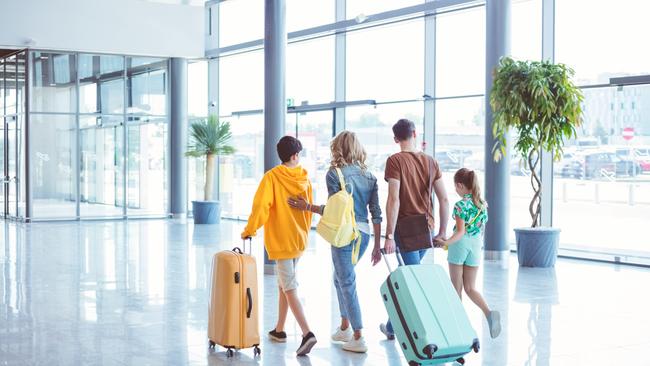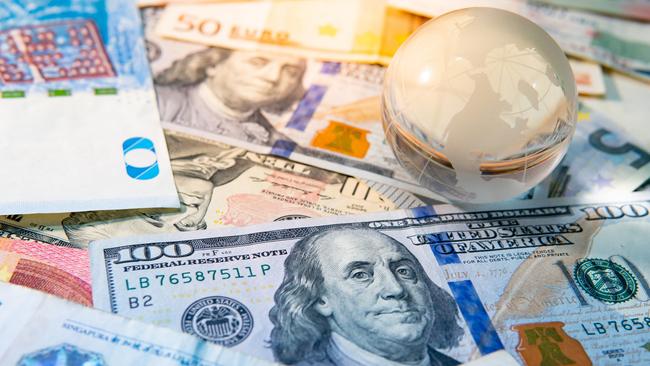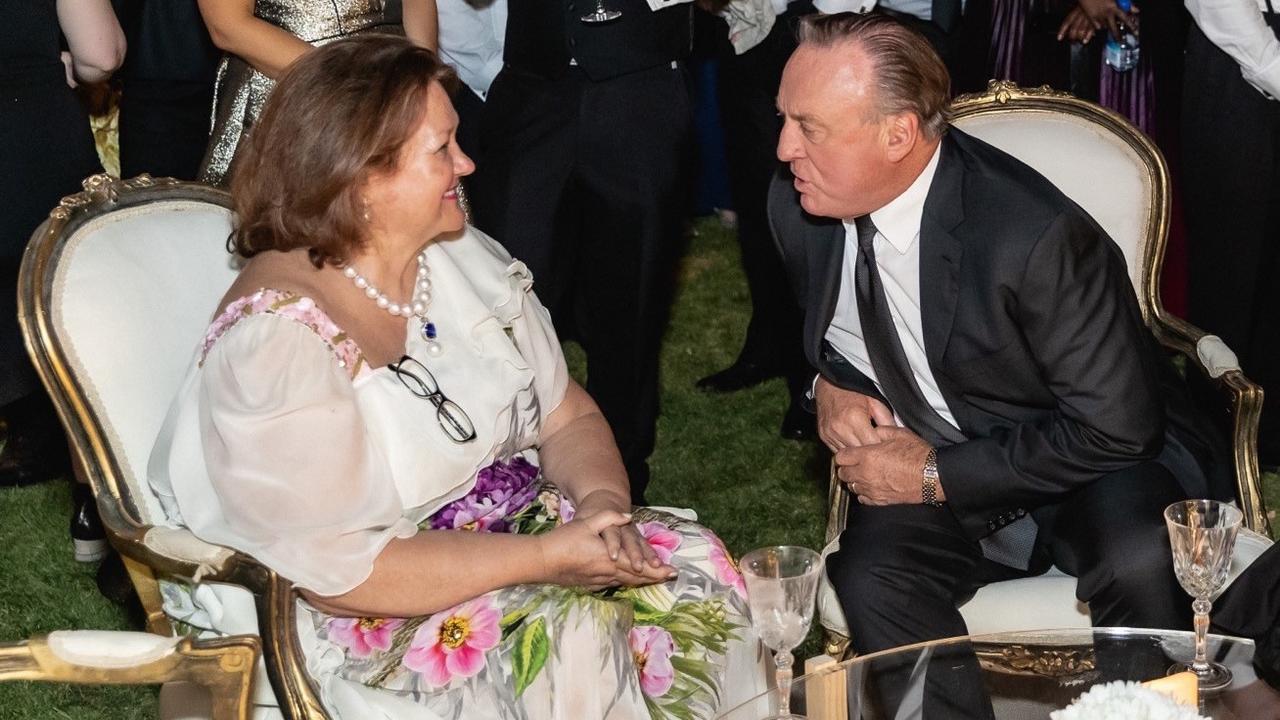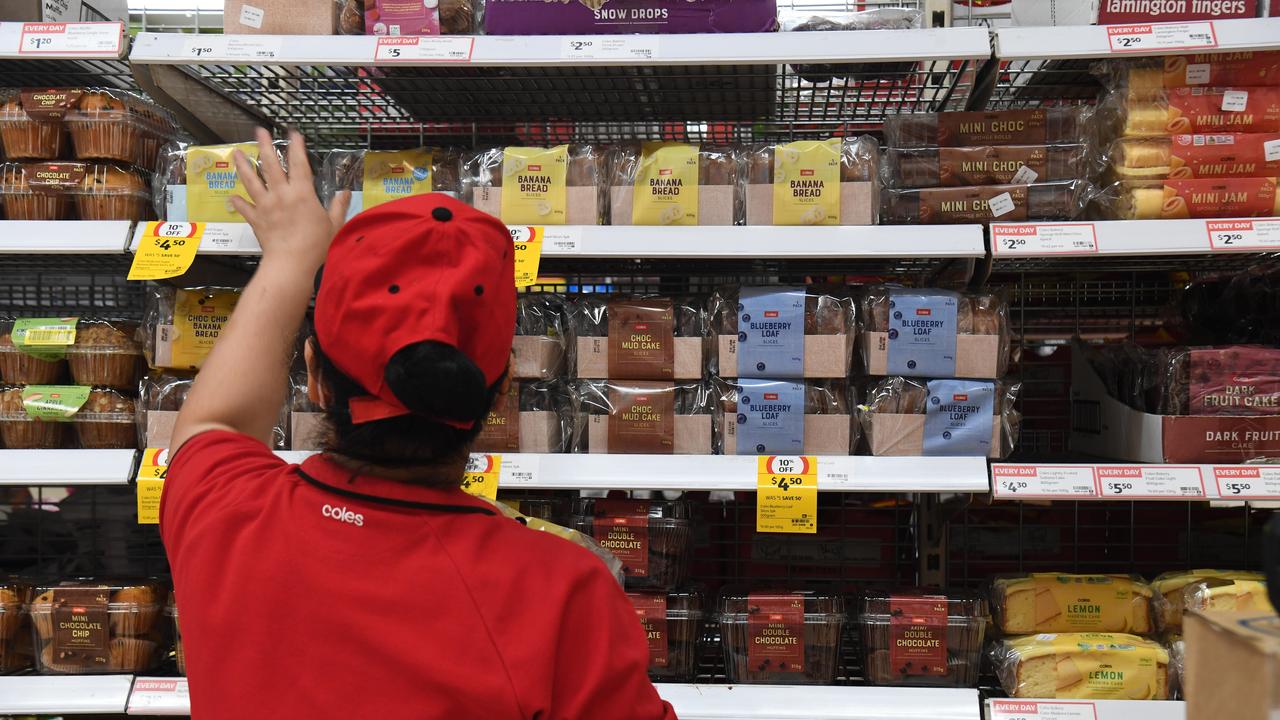Foreign exchange falls flat if these money mishaps hit your finances
Foreign exchange can be frightful for your finances when holidaying overseas, so remember this golden rule.

Business
Don't miss out on the headlines from Business. Followed categories will be added to My News.
From Bali to Britain, New Zealand to New York, Aussies love travelling overseas, even in a cost-of-living crunch.
The latest Australian Bureau of Statistics figures show almost one million people took a short-term overseas trip in August, and the traditional December spike last year eclipsed two million – still shy of the 2.2 million who
left in the December before Covid, but getting close.
Foreign exchange confuses many people, and there are traps and hidden fees that can hurt travellers’ finances. But currency and travel experts say there are several ways to avoid foreign currency traps.
Rule No. 1, they say, is to avoid buying foreign cash at the airport before you go.
“While it’s really convenient, the exchange rates and fees can really add up – even on a few hundred dollars,” says S Money founder Justin Rampono.

“A lot of people see one exchange rate on the news or online and may see something very different at the airport or at a money changer,” he says. “Unfortunately, many don’t realise that the difference between the two rates they see is a hidden cost of exchanging currency.”
Rampono says people should never trust claims of no fees or commissions because it means the exchange rate is loaded with a hidden margin.
AUSSIE DOWN
And don’t worry too much about short-term moves in the exchange rate ahead of travelling. While the Aussie dollar has dropped sharply this month compared with the strong US dollar, down from US69.2c to US65.6c, it has not fallen that much against the euro (from 62 to 61) and British pound (52p to 51p), and is stronger against Japan’s yen and New Zealand’s dollar.
“Where you change your money will probably save you more than when you change your money,” Rampono says.
“No one can pick the best time to exchange currency but just avoiding the worst money changers – like at the airport – will make a big difference.


“If you are exchanging money in person, find the best rate online and ask them to match it.”
When buying something or withdrawing money from an ATM overseas, when asked whether you want to pay in your own currency or the currency of the country you are in, always pay in the foreign currency. Otherwise you may be in hidden fee hell.
Global currency giant Wise’s country manager for Australia and New Zealand, Tristan Dakin, says you can’t control exchange rates but you can control the fee you pay.
“Most banks and financial providers don’t provide a clear, transparent way of showing what fees you’re paying – be it
for spending or sending money abroad,” Dakin says.
“And generally, they bake their own fees into an inflated exchange rate.”
TRAVEL CARDS
Dakin says consider a multi-currency travel card that never pays with Aussie dollars when overseas.
“You avoid any nasty and surprising exchange rate fees or transaction fees, because you’re paying in the local currency,” he says.
Dakin says travellers should plan ahead, avoid “appalling exchange rates” at airports, and if travelling somewhere cash remains popular – such as Vietnam or Thailand – be aware of ATM fees that may be charged by both the overseas bank and your own bank.
Finder.com.au travel specialist Angus Kidman says some credit cards charge foreign exchange fees and others don’t.
“A common error is to just use your regular credit card, without checking if it charges foreign transaction fees,” he says.
“Another common mistake is overstocking on physical cash. Yes, you may need some for street stalls or tipping, but you’ll still pay for big-ticket items with a card. In Europe in particular, not being able to pay with cash at all is increasingly common.”
A new Finder survey discovered that
one in six Australians overspend on travel, with some borrowing money or having to cancel. Currency stress should not be piled on top of that.

Overseas currency tips
● Use a credit or debit card that doesn’t charge fees for international transactions.
● Don’t wait until the airport to change your currency.
● Don’t try and game exchange rates.
● Consider using a separate credit or debit card overseas. Then if there are issues and the card is cancelled, you won’t mess up regular payments at home.
Source: Finder.com.au
More Coverage
Originally published as Foreign exchange falls flat if these money mishaps hit your finances





